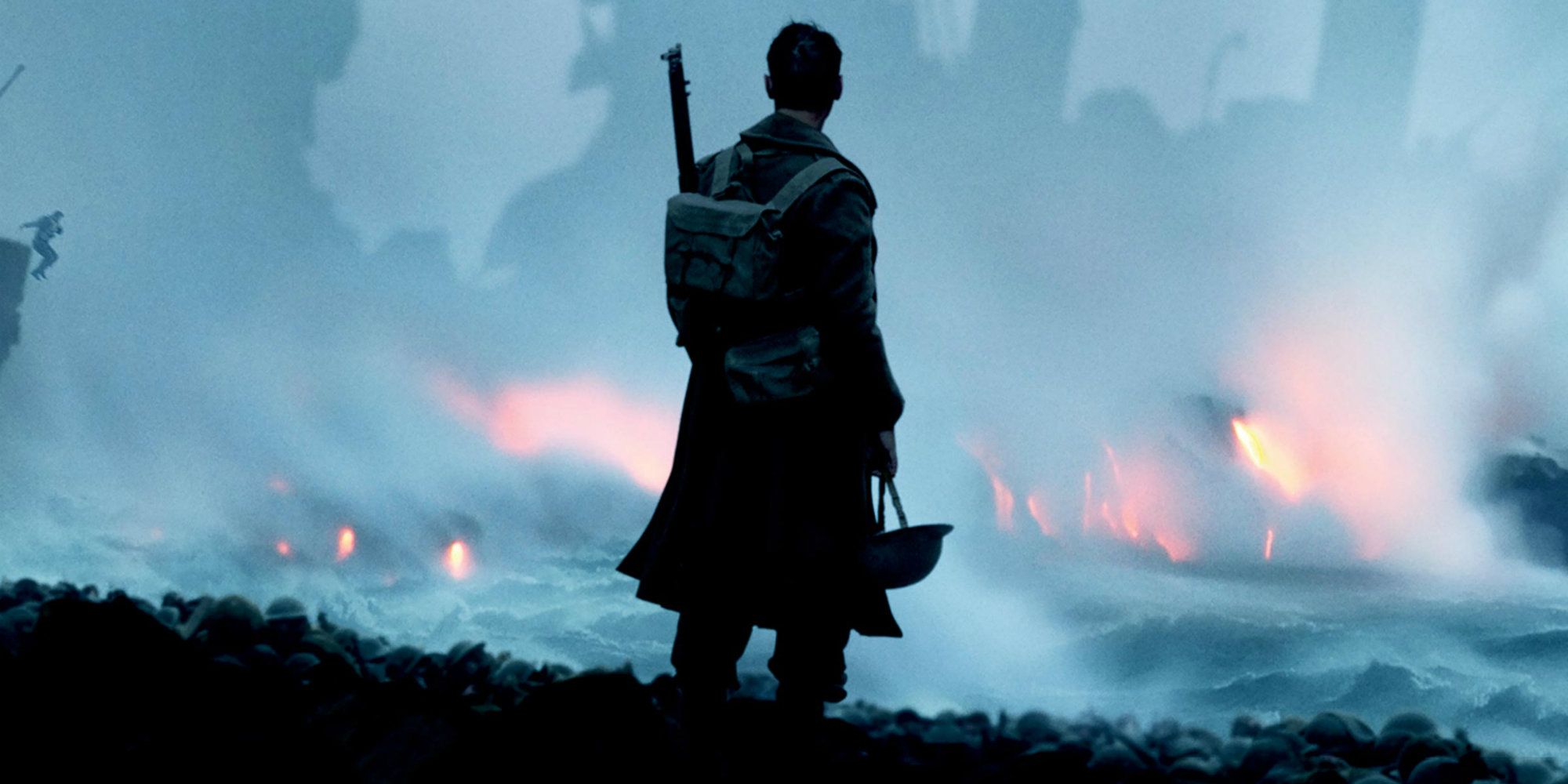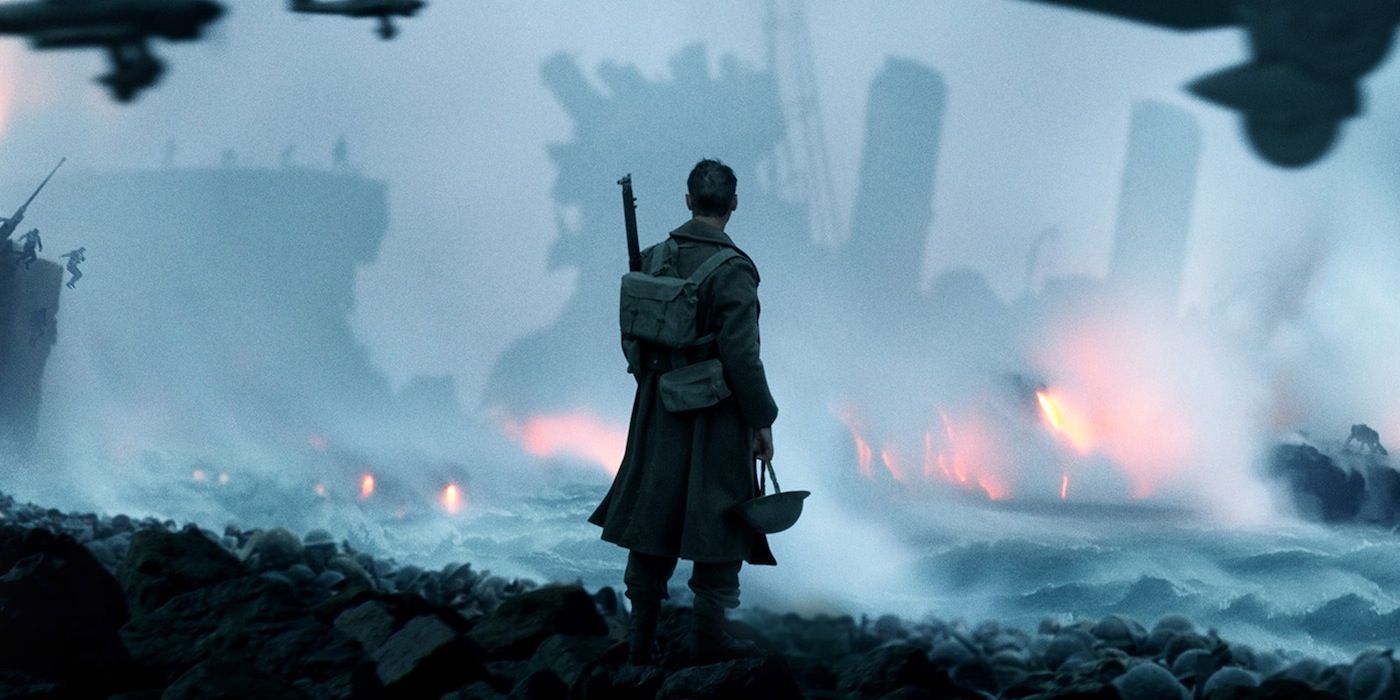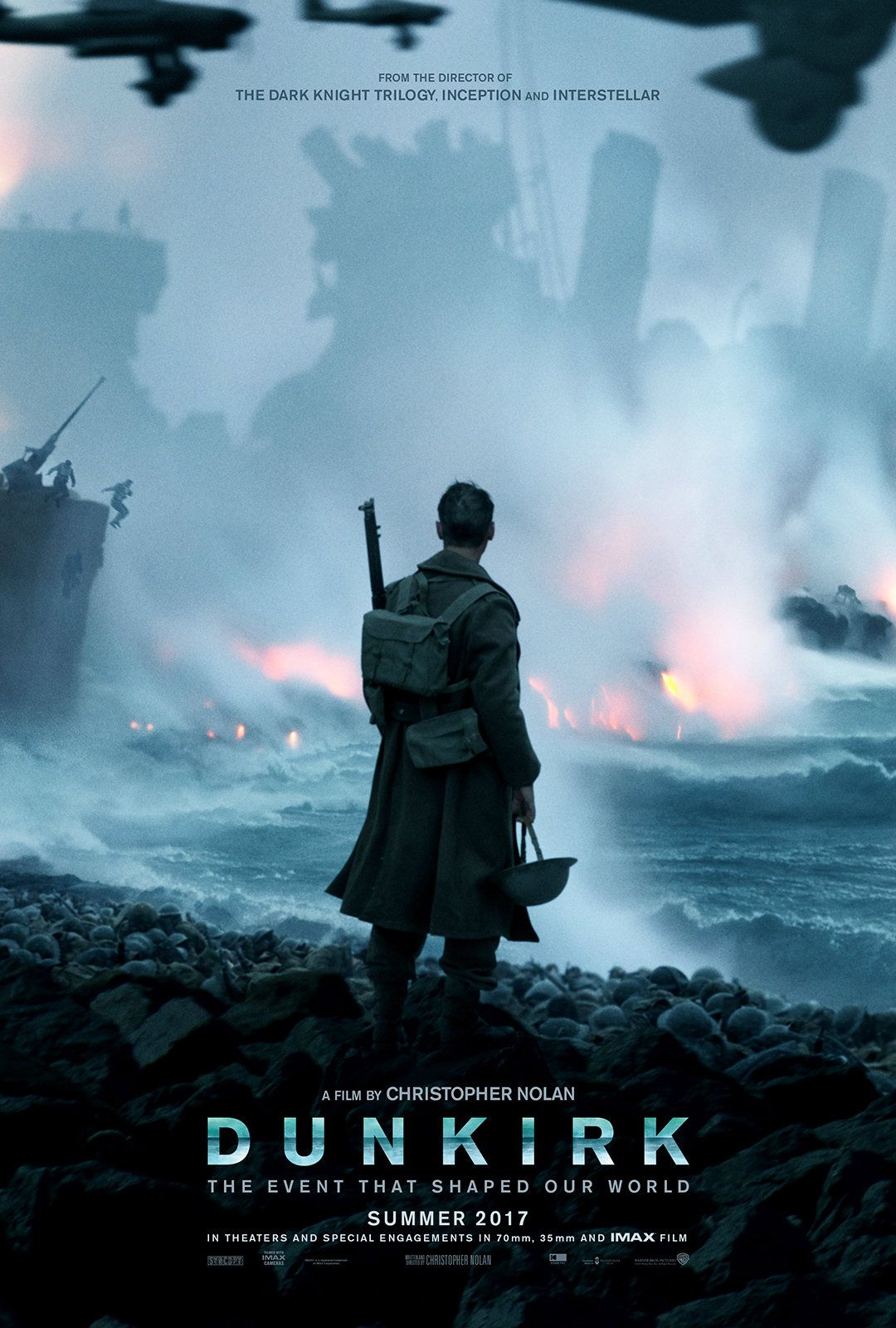Christopher Nolan has revealed why he made his new World War II movie Dunkirk so short. The director's latest clocks in at a lean 107 minutes, a surprisingly brief runtime for both a movie about WWII and a Nolan work; it's his shortest movie since his 1998 debut Following and over an hour shorter than his last feature, Interstellar.
Nolan has previously explained that Dunkirk is not a traditional war movie and will be "a survival story and first and foremost a suspense film." The movie's relatively restrained violence explains its PG-13 rating, while its lack of focus on the wider historical and political implications of the famous Dunkirk evacuation mission explains its relatively short length. Now, Nolan's revealed more of his reasoning for making Dunkirk a shorter-than-usual moviegoing experience in a new interview.
Speaking to Fox 5 D.C.'s Kevin McCarthy, Nolan explained in great detail why he ultimately cut Dunkirk at just 1 hour, 47 minutes. The director aimed to subvert common notions of war movies as 'historical epics' by focusing more on building the characters and telling the story through action rather than excessive dialogue.
"I wanted it to be an intense an experience as possible and therefore as lean and stripped down and short an experience as possible. You can only sustain the degree of suspense and tension that we wanted from the film for so long before you exhaust the audience. I think perhaps people hearing that I was doing a film about Dunkirk, particularly British people who know the story already are thinking big historical epic, they're imagining a three-hour film with a lot of talking and all the rest. What I did is I wrote a script that was 76 pages that is really half the length of my old screenplays because I didn't want to tell the story in words - I didn't want the theatrics of people telling the audience why you should care about them. I wanted to care about them just because of the physical situation they were in, and in that way build up a subjective experience of the events of Dunkirk that would hopefully have a cumulative quality, emotional quality through the course of the film that will pay off at the end of the film without ever being overly theatrical or sentimentalising these real life events.
"So the relentless pacing of it and the stripped down nature of it was something I was very determined to stick to with right from the beginning before I wrote the script."
Nolan's approach of building character through actions rather than words in Dunkirk is nothing new in filmmaking or screenwriting. Indeed, it's a technique that recently worked well for Patty Jenkins' action scenes in Wonder Woman. It's uncommon for movies about war, however, to focus entirely on the action and strip away the "talking" that Nolan wanted to avoid. Recent previews of Dunkirk reveal characters in a tense, claustrophobic situation that will leave little breathing room for viewers and could certainly deliver some relentless suspense.
It remains to be seen whether Nolan's unique approach to telling a war story will pay off. Some segments of viewers could inevitably be turned off by the movie's lack of "anything that would be overly theatrical" and supreme focus on action and "paradoxical physical situations". But based on what's been seen so far, Dunkirk has a chance to be one of Nolan's most intense movies yet.
More: Christopher Nolan Responds To ‘Emotionless’ Criticisms
Source: Fox 5 D.C.



